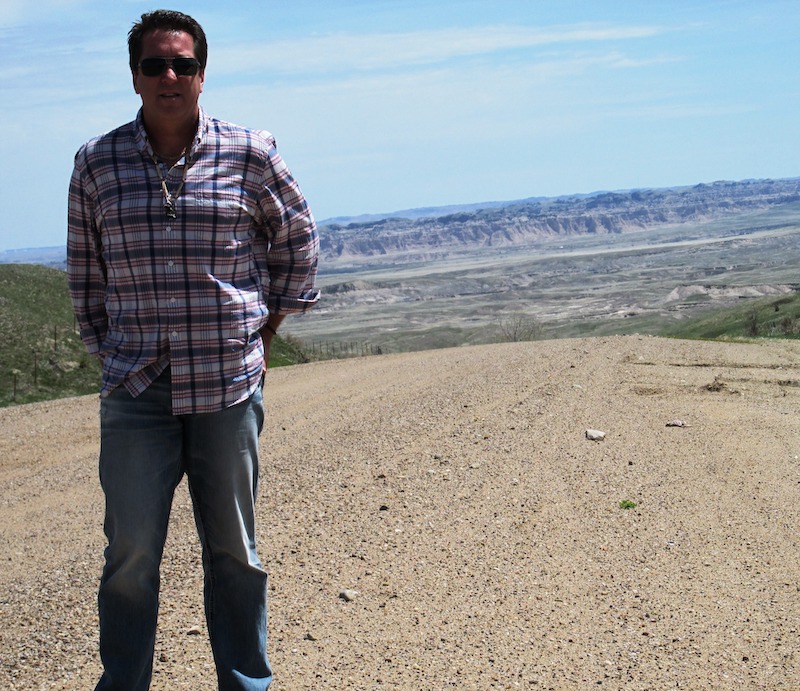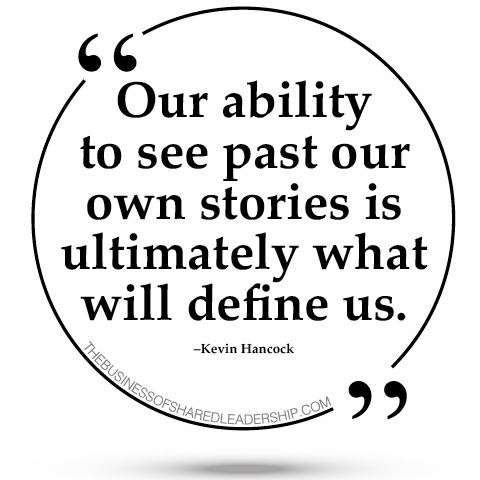“La Storia di questi avvenimenti fu scritta dai vincitori.”
(“The history of these events was written by the winners.”)
–Italian proverb
Are you aware that your view of the world is based on a carefully cultivated set of stories that you have been repeatedly told since childhood?
You’ve likely been fed these stories for so long in both overt and covert ways that you’ve accepted them as largely unalterable truths.
 For example, I remember how silence consumed me the day I realized that America had committed countless acts of genocide against indigenous peoples. It was my second trip to the Pine Ridge Indian Reservation and I had just left a visit with several community leaders through which the full, ugly story had been revealed. Later, beside my dusty rental vehicle I searched the term “genocide” on my phone. The treatment of the plains tribes met every criteria. I was dumbfounded at my own historical ignorance.
For example, I remember how silence consumed me the day I realized that America had committed countless acts of genocide against indigenous peoples. It was my second trip to the Pine Ridge Indian Reservation and I had just left a visit with several community leaders through which the full, ugly story had been revealed. Later, beside my dusty rental vehicle I searched the term “genocide” on my phone. The treatment of the plains tribes met every criteria. I was dumbfounded at my own historical ignorance.
I majored in American history in college and then taught that same history as a career for several years thereafter. Not once across that entire educational journey did I see, hear, or read anything about genocide as a central element of the America experience. Yet now, suddenly, that truth was as real as the moon and the sun.
I paced in circles, unable to break my orbit and re-enter my car.
“We all adhere to a belief system; otherwise, we don’t have a strategy for dealing with a complex world,” my Colombian-born friend and advertising executive Jose Miguel Sokoloff once told me over an English breakfast in London.
Storytelling is one of the oldest traditions of the human experience. It’s through stories that we come to know our heritage, our ancestors, and ourselves. Stories sort and select our enemies and our friends. They define our families, faiths, and countries. Most everything you know came to you through stories. It’s the price contextualizing the world demands.
But what happens when we become so deeply immersed in our own narratives that we can’t contemplate the possibility that what we perceive as absolute truth is actually, in part, merely a story? And how do we react when we come into contact with others from different cultures, faiths, and times whose lives have been built on a different set of tales?
 When our stories become central to our sense of identity it can be very difficult to transcend them and consider a new set of possibilities. There are few skills more essential to continuous personal renewal and heightened social consciousness than the ability to critically reexamine our personal beliefs and tribal narratives.
When our stories become central to our sense of identity it can be very difficult to transcend them and consider a new set of possibilities. There are few skills more essential to continuous personal renewal and heightened social consciousness than the ability to critically reexamine our personal beliefs and tribal narratives.
And how would you say we are doing in that regard?
Our loftiest social narratives are written by the winners—by those who hold the most power at the time of their creation. Throughout history it has often been dangerous, even life-threatening, to question these stories once the ruling hierarchy has sanctified them.
That’s why Jesus was crucified. Ironically, it’s also why in 1555, Protestant bishops Hugh Latimer, Nicholas Ridley, and John Hooper were condemned as heretics and burned at the stake in Jesus’s name.
That’s why Vladimir Putin’s top political opponent Alexei Navalny was poisoned while exiled in Germany, and then sentenced to two and a half years of hard labor upon his return. There can only be one political story in Putin’s Russia.
This is also why freedom fighters in Hong Kong are being systematically oppressed, tried, and jailed. When Chairman Xi speaks before the National Congress, everyone must stand and applaud.
Why would a small group of leaders within an ethnic group, religious faith, or nation-state go to such great lengths to create a single sanctioned narrative?
The answer is simple: to control the story. Despite all the tanks, missiles, and technology in Russia, China, and America, the power of each rests in the maintenance of a dominant historical narrative. Everything we know rests on the veracity of a story.
Our ability to see past our own stories is ultimately what will define us.
So where to begin?
As always, we must begin at home – within ourselves.
In future essays I will be taking a look at my own white, male, Christian, American, CEO stories that have combined to shape my limited view of a diverse and complex world.
And what shall I take from this potentially discomforting inquiry?
What I expect to find is that my stories are incomplete and that there are far more dimensions and truths than I have previously made room for. After all, what is “truth,” and who gets to define it?
Unpacking our own narratives is essential for change to occur. Unless I can loosen my grip on my own stories, I can’t possibly make room for any of yours.
“History is mostly story.”
—Ken Burns
* * *
Thank you for considering my thoughts. In return I honor yours. Every voice matters. Between our differences lies our future.
____________________